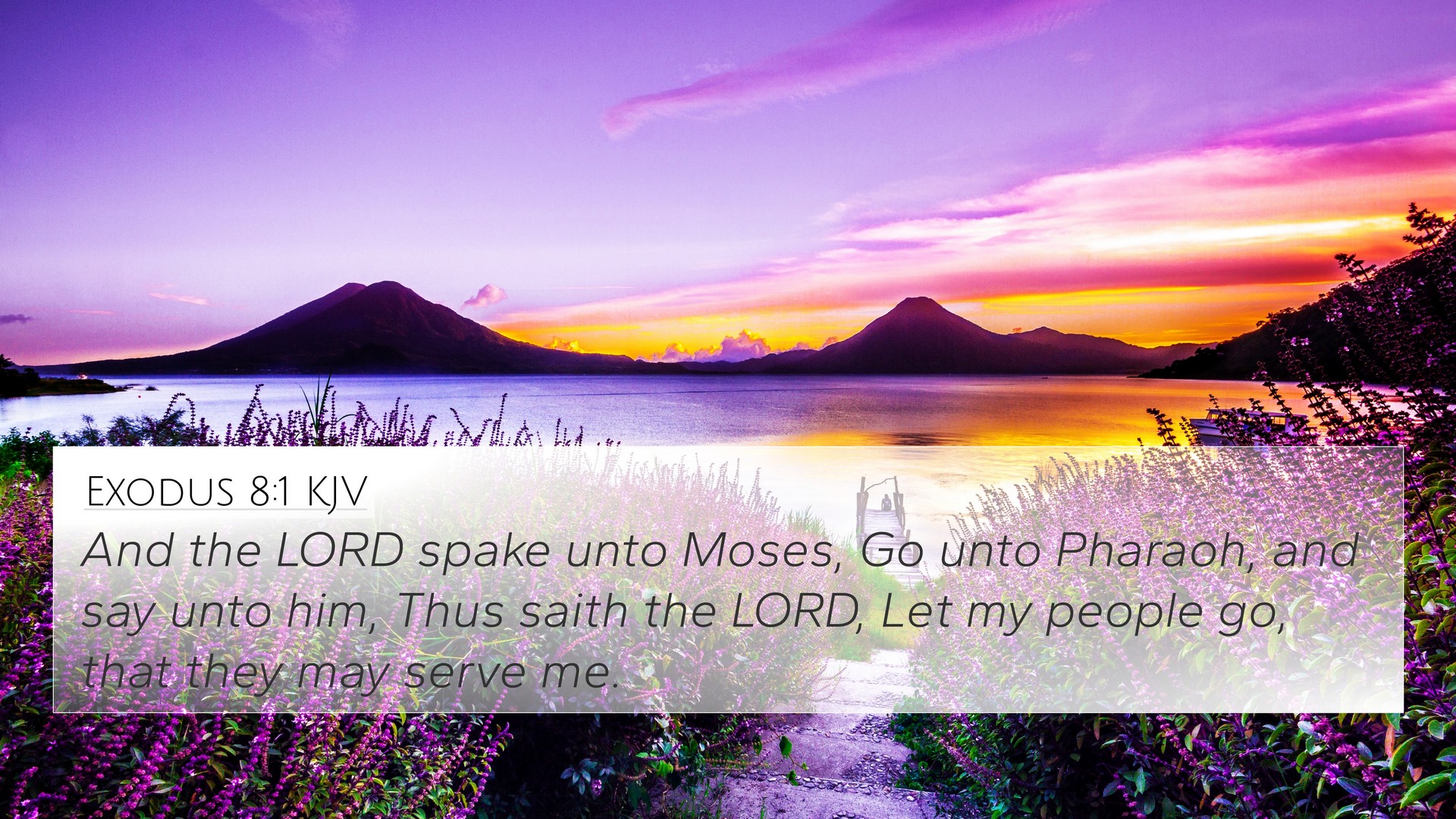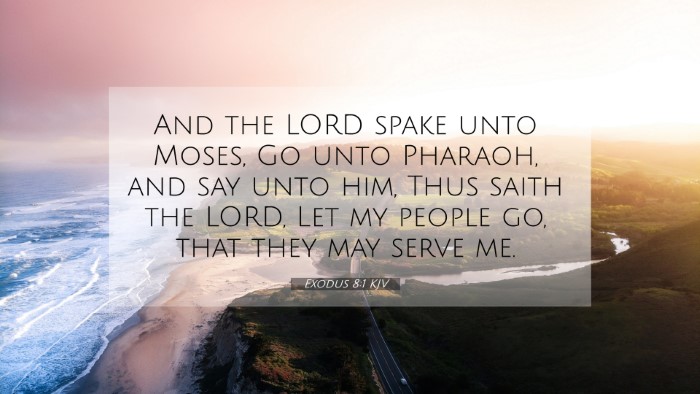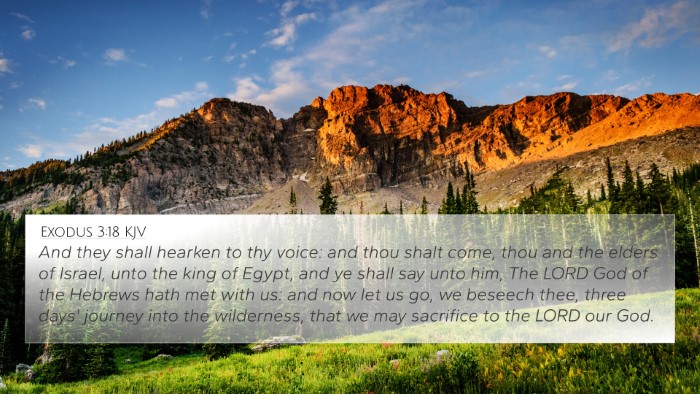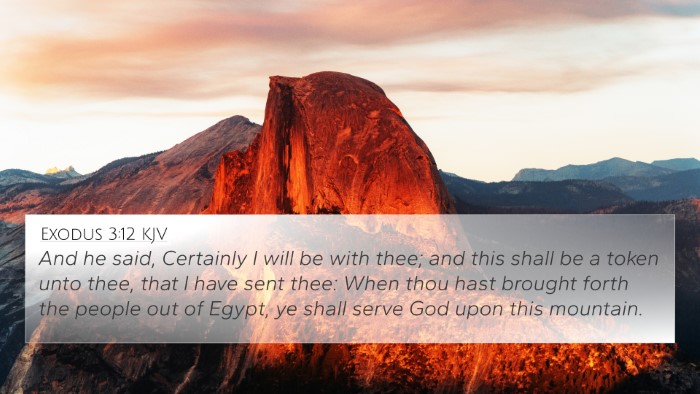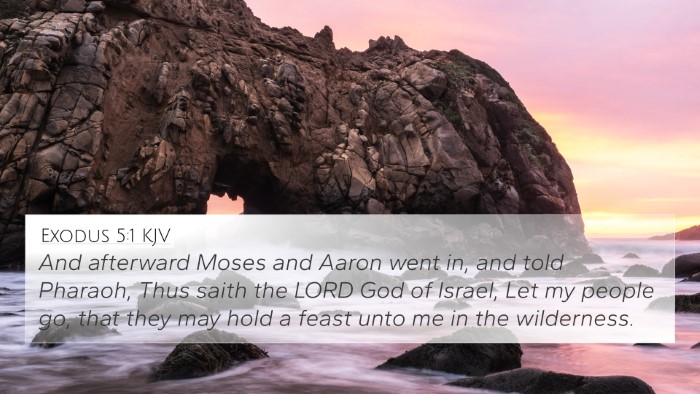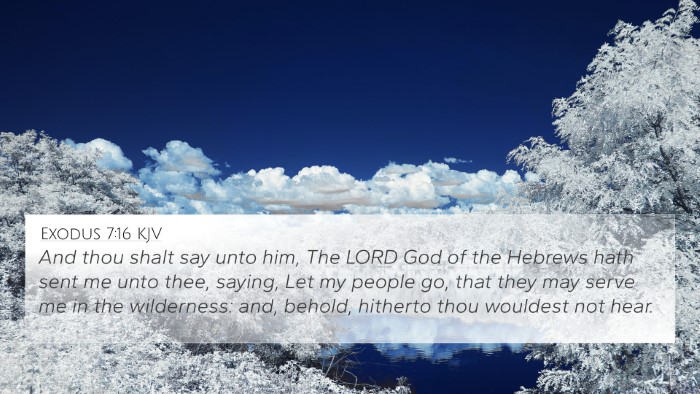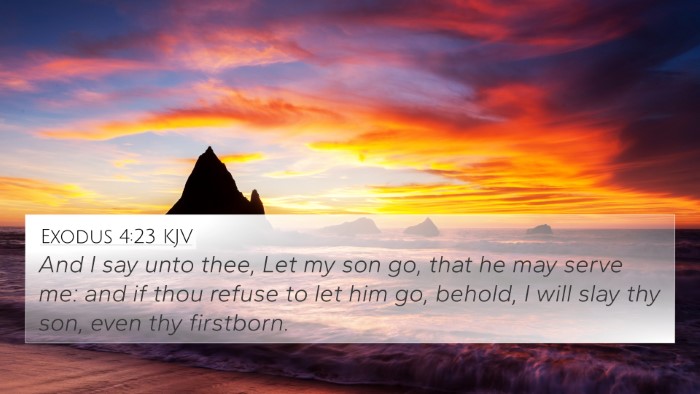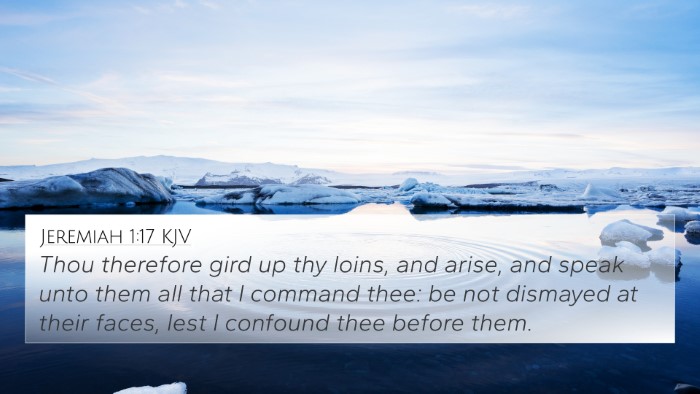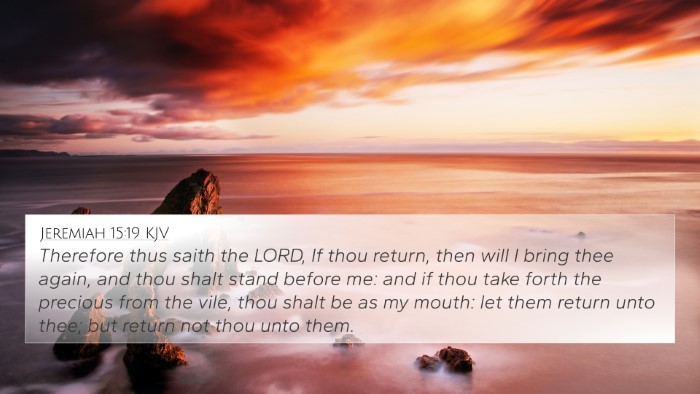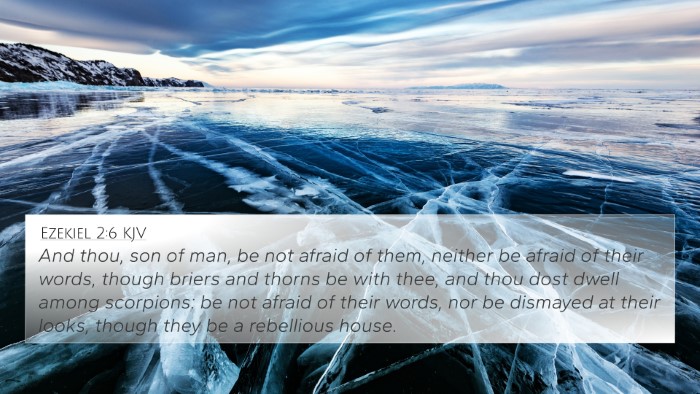Understanding Exodus 8:1
Exodus 8:1 states: "Then the Lord said to Moses, 'Go to Pharaoh and say to him, "This is what the Lord says: Let my people go, so that they may serve me."' "
Verse Context and Significance
This verse is pivotal in the narrative of the Exodus, where God commands Moses to confront Pharaoh. It highlights the central theme of liberation and God’s authority over Egypt, representing His desire for His people to worship freely.
From a theological standpoint, this command emphasizes the role of divine authority and the importance of obedience to God's will. It also reflects the persistent nature of God's communication with His people through prophets.
Commentary Insights
Matthew Henry's Commentary: Henry emphasizes the inflexible resolve of God towards Pharaoh in demanding the release of the Israelites. He notes that this is a reflection of God’s omnipotence, as He can command even the most powerful rulers.
Albert Barnes' Notes: Barnes highlights the direct nature of God's instruction to Moses and how it symbolizes the broader struggle between divine will and human authority. He suggests that this confrontation is a foreshadowing of the ultimate power struggle between good and evil.
Adam Clarke's Commentary: Clarke adds a sociocultural layer, interpreting Pharaoh's obstinacy as representative of the resistance many face when confronted with divine truth. He encourages believers to consider their own spirits and responses to God's commandments.
Biblical Cross References
Exodus 8:1 can be cross-referenced with several key verses that deepen understanding and show thematic connections within the Bible:
- Exodus 5:1: "Afterward Moses and Aaron went in and told Pharaoh, 'Thus says the Lord God of Israel: "Let My people go, that they may hold a feast to Me in the wilderness."'
- Exodus 7:16: "And you shall say to him, 'The Lord God of the Hebrews has sent me to you, saying, "Let My people go, that they may serve Me in the wilderness; but indeed, until now you would not hear!"'
- Romans 9:17: "For the Scripture says to Pharaoh: 'For this very purpose I have raised you up, that I may show My power in you, and that My name may be declared in all the earth.'
- Isaiah 49:24-26: "Can the prey be taken from the mighty, or the captives of the righteous be delivered? ... For I will contend with those who contend with you..."
- Acts 7:35: "This Moses whom they rejected, saying, 'Who made you a ruler and a judge?' is the one God sent to be a ruler and a deliverer..."
- Hebrews 11:23-29: Discusses the faith of Moses and the ultimate deliverance of the Israelites from Egypt.
- 1 Peter 2:9: "But you are a chosen generation, a royal priesthood, a holy nation, His own special people..." stressing the identity that God gives to His people.
Thematic Connections and Analysis
This verse, and the surrounding narrative, form part of a larger theme of redemption throughout the Scriptures, reflecting God's desire for relationship with His people and their need for deliverance from oppression.
In essence, Exodus 8:1 not only commands physical liberation but also spiritual awakening, urging God's people to serve Him wholeheartedly. This resonates through various scripture passages which address freedom, service, and God's faithfulness.
Practical Applications
Believers can derive several practical applications from Exodus 8:1:
- Emphasize Obedience: Just as Moses obeyed in delivering a message from God, individuals are encouraged to heed the calling in their lives.
- Trust in God’s Power: This verse serves as a reminder that God is in control even amidst challenging circumstances.
- Commitment to Serve: The call to serve should resonate in the hearts of believers, motivating them to engage in community and worship.
- Reflection on Authority: Understanding the dynamics of power can encourage believers to lean on divine guidance when facing earthly challenges.
Concluding Thoughts
Exodus 8:1 acts as a critical junction in the journey of the Israelites, symbolizing God's unwavering commitment to deliverance and His deep desire for His people to worship Him freely. Through examining this verse and its expansive connections in Scripture, believers can gain insight needed for deeper spiritual understanding and growth.
